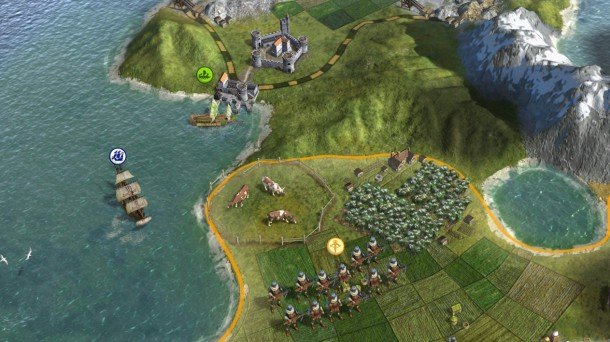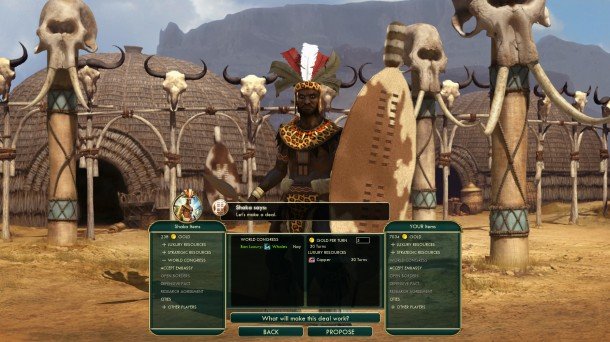Civilization V designer Jon Shafer's criticisms were "a little harsh," says current designer

Earlier this week I spoke to Ed Beach, Lead Designer on the Civilization V: Gods & Kings expansion, as well as the upcoming Brave New World expansion. I asked Beach for his thoughts on Civ V designer Jon Shafer's recent self-criticisms regarding Civilization V's one unit per tile system and leader AI quirks. "He was a little harsh on it," said Beach. "And I won't try to guess as to exactly what his frame of mind was, where he's coming from."
"Unit stacking can be a problem in Civ V, and I definitely think we've been acknowledging that for a while," continued Beach. "In Gods & Kings we made a change so that embarked land units could stack with naval units, because there was a lot of congestion out in the seas. So, there were definitely issues, but I'm still a big fan of one unit per tile. I think it improves the combat in so many ways, there's so much more tactical maneuvering and positioning."
Though he didn't address Civ V's notoriously fickle AI leaders, Beach went on to explain how the one unit per tile system has been improved over time.
"I think you just have to make sure, when you're designing a game like this with a one unit per tile system, that you're setting out for one unit per tile where it's helpful for you, like in spreading out the combat units and adding that tactical positioning play to the military side of it, and you're not enforcing one unit per tile rules in places where it's just getting in the player's way.
"So, I'm a big fan of one unit per tile, but I think we didn't quite hit it right with the initial release, in terms of where it was important to enforce it, and where we could just relax the rules a little bit. As long as we keep that in the forefront of our thinking, we'll be fine."

I also pointed out that Civilization is a series which is known to improve over time with expansions, but wondered what informs the decision to tear it all down and start over with a new numbered game.
"You want to set things up where you have a great foundation to build upon, and when you've invested in building that initial framework, you want to leverage that and get as many cool systems in to play off of that base as possible," said Beach.
The biggest gaming news, reviews and hardware deals
Keep up to date with the most important stories and the best deals, as picked by the PC Gamer team.
"There is a point in time where, as you put each of those systems in, you learn a lot about the base game...and you see where things are working, and where things are still holding you back a little bit. You start to get to the point where, those things you can't change about the base game, because they're so fundamental to this particular iteration, are holding you back from what you want to try, then it's time to start looking at a new foundation."
I acknowledged that Beach obviously couldn't hint at plans for Civilization VI, to which he responded, "It is true that there are now 43 civs in the game, and the most any Civ has had up until now was 34. We actually hit 34 with Gods & Kings, and now we're going to be nine beyond it. So, that particular number is getting way up there."

Tyler grew up in Silicon Valley during the '80s and '90s, playing games like Zork and Arkanoid on early PCs. He was later captivated by Myst, SimCity, Civilization, Command & Conquer, all the shooters they call "boomer shooters" now, and PS1 classic Bushido Blade (that's right: he had Bleem!). Tyler joined PC Gamer in 2011, and today he's focused on the site's news coverage. His hobbies include amateur boxing and adding to his 1,200-plus hours in Rocket League.

